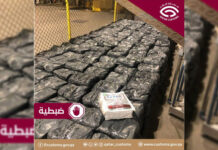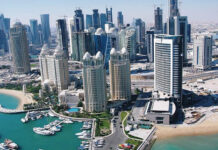Qatar Museums’ Department of Architectural Conservation has completed restoration project of the historic Al Rakiyat fort in the north-east of the Qatar peninsula. Following its commitment to preserve, restore and expand the country’s ancient architectural identity, the Architectural Conservation team at Qatar Museums has helped realise a critical aspect of Qatar’s National Vision 2030.
Image credit: Qatar Museums
Historical sources place the origins of the fort between the 17th and 19th century. Its unique, local building style and historic integration into the country’s landscape have made Al Rakiyat (“the well” in Arabic) one of the oldest and most important desert forts in Qatar.
Adel Abdullatif Al Moslamani, Director of Cultural Heritage Conservation at Qatar Museums, said: “As part of a concerted effort to safeguard our past for future generations, we set out to restore one of our country’s principal heritage sites to its former glory. Al Rakiyat fort is a breathtaking relic of Qatar’s rich history where our forefathers guarded valuable water resources for nearby coastal villages. With respect for the century-old structure, our team worked carefully to preserve and reinforce the original fort, allowing it to carry on the story of our past for decades to come.”
Image credit: Qatar Museums
Following its initial restoration in 1988, the archaeological site suffered environmental damage that took a toll on the structural components of the historic building. The current Qatar Museums-led restoration effort followed leading global conservation standards and restoration techniques, using traditional and authentic building materials. Restoration works focused on the main structural components of the building, including plaster, flooring, installation of a wooden ceiling, doors, and treatment against pests.
Heritage preservation is a core component of Qatar’s national strive towards economic, human, social and environmental development, recognising that all forward-looking progress must be informed by the country’s distinctive Arab and Islamic values and identity. Al Rakiyat fort now stands as an enduring landmark of Qatar’s cultural identity, giving forthcoming generations an important insight into the defence architectural.
Source: Qatar Museums
Cover image credit: QNA
Follow us on our social media channels:
@ILQlive
@ILQlive
@ILoveQtr
ILoveQatar









